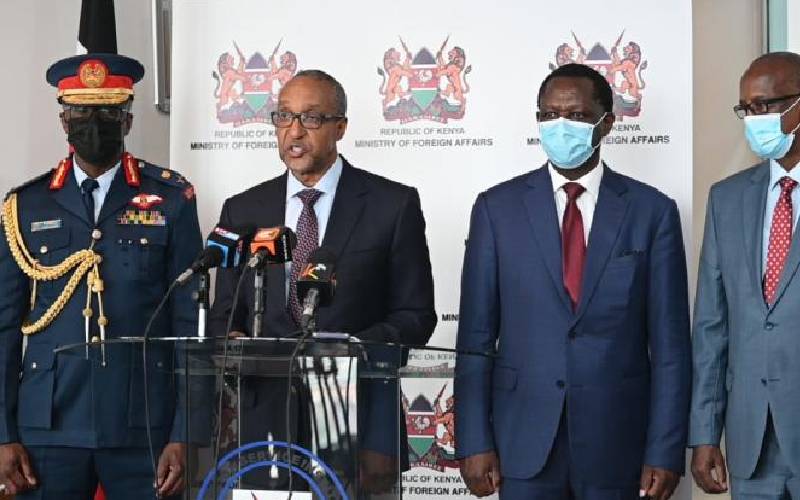
Vice Chief of Kenya Defense Forces, Lt. Francis Ogola, Ministry of Foreign Affairs Principal Secretary Amb. Macharia Kamau, Solicitor General Kennedy Ogeto and Principal Secretary Ibrahim Mohammed addressing the press conference on the Kenya - Somalia Maritime dispute. [Samson Wire,Standard]
The ruling by the International Court of Justice (ICJ), that experts largely agree favoured Somalia over Kenya may have opened a can of worms for the region in the long term. It is unlikely that the status quo will change both in the short and medium term. As expected, Kenya has rejected the decision of the court in totality while Somalia has welcomed it and urges her neighbour to accept it.